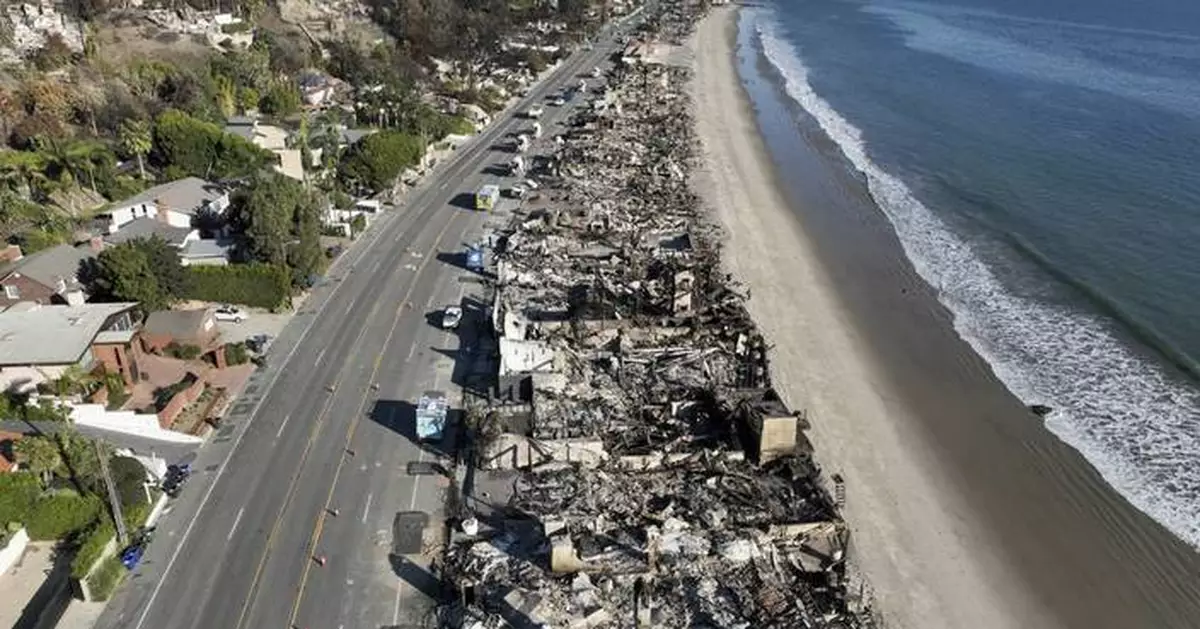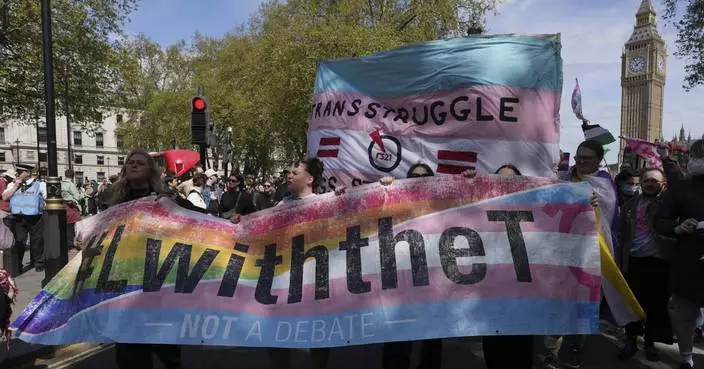SACRAMENTO, Calif. (AP) — Two lawsuits filed in Los Angeles allege major home insurance companies have colluded to limit coverage in California communities at high risk for wildfires and force homeowners onto the state's last-resort insurance plan that offers basic coverage and high premiums.
Insurers, including State Farm and 24 other companies that hold 75% of California's home insurance market, were part of an “illegal scheme” in violation of California's antitrust and unfair competition laws, according to one of the lawsuits, filed last week.
The lawsuit said the companies worked together in 2023 to “suddenly and simultaneously” drop coverage or halt writing new policies in fire-prone areas, including in neighborhoods like Pacific Palisades and Altadena that were leveled in the January wildfires that destroyed nearly 17,000 structures and killed at least 30 people. That has forced hundreds of homeowners onto the FAIR Plan that offers limited coverage capping at $3 million, leaving them underinsured and now struggling to rebuild after the fires, says the lawsuit filed by a group of homeowners who lost their houses in the LA fires.
The other lawsuit includes all policyholders who obtained the FAIR Plan after January 2023, when the conspiracy allegedly began, the suit says.
“Insurance is a product that homeowners hope never to need, but rely on for peace of mind in normal times and for critical help rebuilding after a catastrophe,” Michael J. Bidart, who represents the homeowners, said in a statement. “The complaints allege that, by colluding to push plaintiffs and so many like them to the FAIR Plan, the defendants have reaped the benefits of high premiums while depriving homeowners of coverage that they were ready, willing, and able to purchase to ensure that they could recover after a disaster like January’s wildfires.”
The lawsuits come as California is struggling with an ongoing insurance crisis, where companies are boosting rates, limiting coverage or pulling out completely from regions susceptible to wildfires and other natural disasters. In 2023, several major insurance companies either paused or restricted new business in the state, saying they can’t truly price the risk on properties as wildfires become more common and destructive due to climate change.
The American Property Casualty Insurance Association, the largest national trade association representing home, auto and business insurers, said it complies with the state's antitrust laws and monitors its members to ensure they do the same.
“These suits defy logic, advance meritless claims, and we are going to focus on solving the challenges in the insurance market in California,” said Stef Zielezienski, the group's chief legal officer.
The state Department of Insurance said it is not involved in the suits but said its focus is on protecting consumers.
“Californians deserve a system that works — one where decisions are made openly, rates reflect real risk, and no one is left without options,” department spokesperson Gabriel Sanchez said in a statement.
State Farm, the largest home insurer in California with roughly a million policies, didn’t immediately respond to requests for comment.
The FAIR Plan is an insurance pool that all the major private insurers pay into. The plan issues policies to people who can’t get private insurance because their properties are deemed too risky to insure. The plan, with high premiums and basic coverage, is designed as a temporary option until homeowners can find permanent coverage, but more Californians are relying on it than ever. There were more than 555,000 home policies on the FAIR Plan as of March, more than double the number in 2020.
The complaints also allege that insurers were pushing policyholders onto the FAIR Plan because companies wouldn't have to shoulder all financial responsibility to sustain the plan. When the state's top insurance regulator in February ordered insurers to provide $1 billion to the FAIR Plan to help it pay out claims related to the LA wildfires, he allowed for half of the cost to be recouped from policyholders statewide. Another lawsuit was filed last week to block the cost-shifting regulation.
California has been in the process of implementing various new regulations to give insurers more latitude to raise premiums in exchange for issuing more policies in high-risk areas. That includes regulations allowing insurers to consider climate change when setting their prices and allowing them to pass on the costs of reinsurance to California consumers.
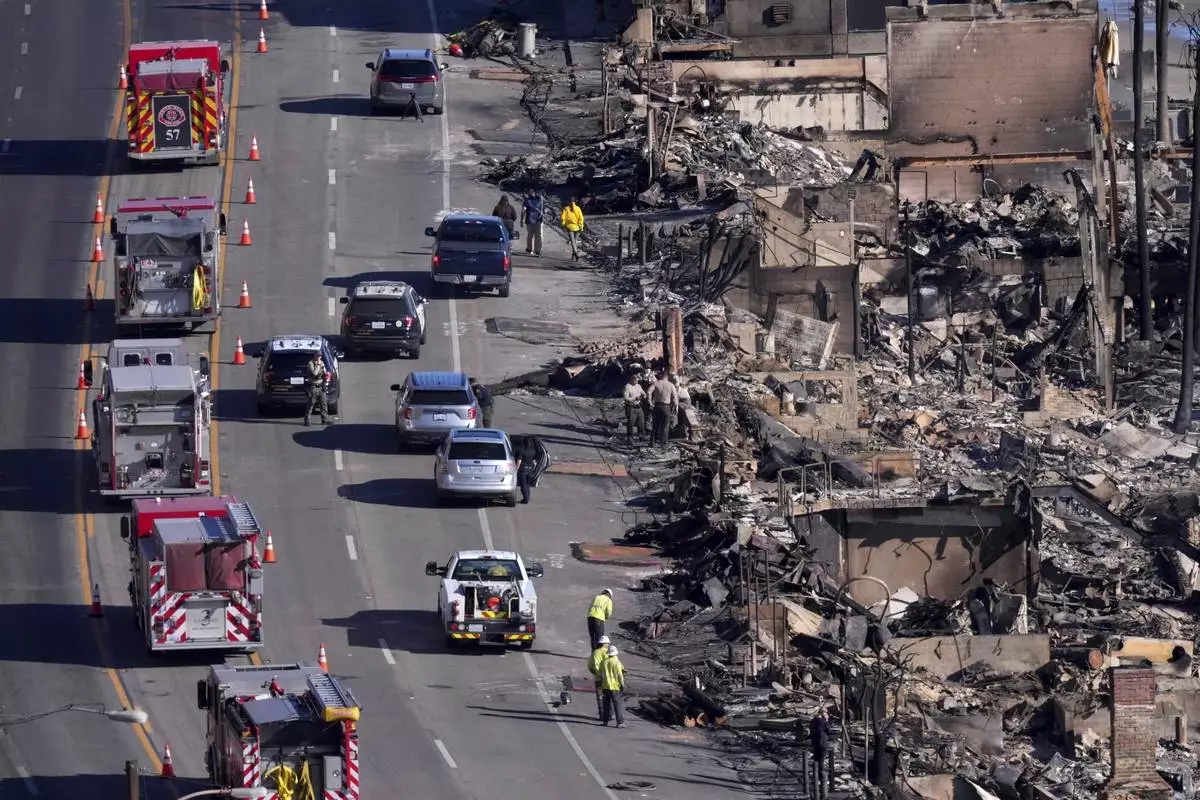
FILE - Beachfront properties are burned by the Palisades Fire, Jan. 12, 2025 in Malibu, Calif. (AP Photo/Mark J. Terrill, File)
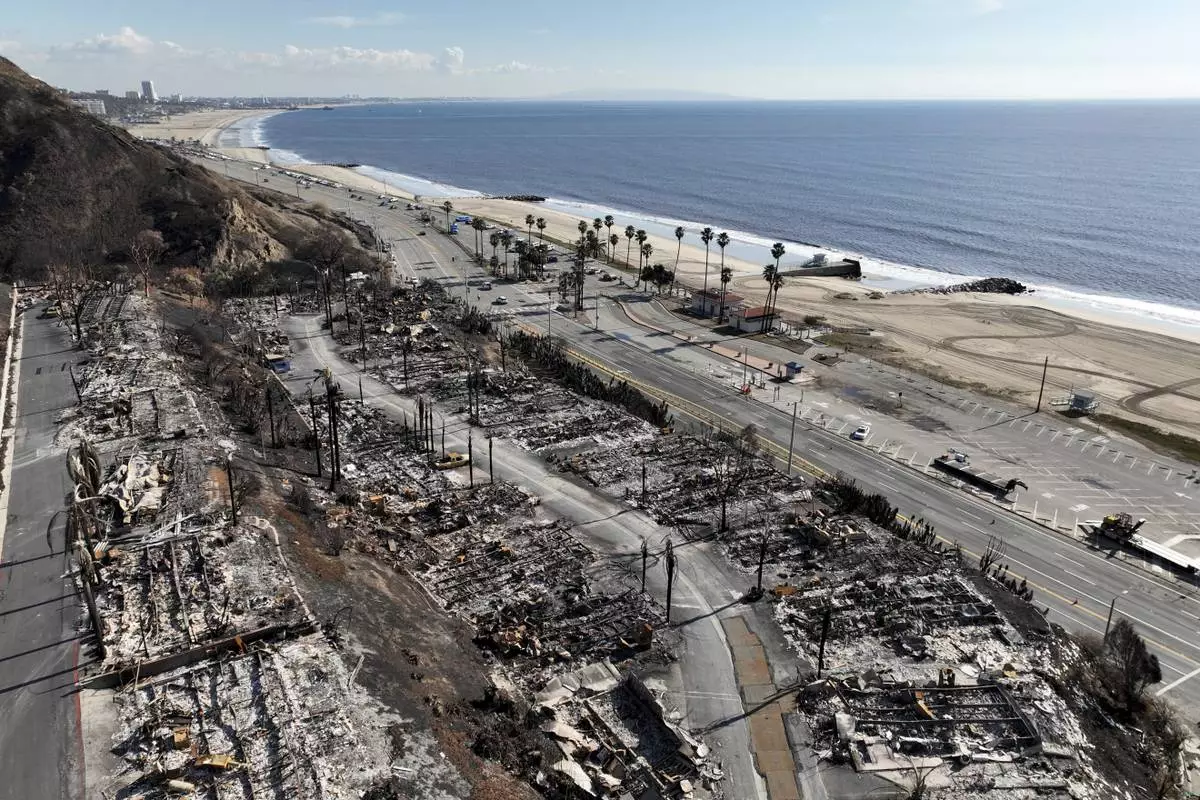
FILE - An aerial view shows the devastation left by the Palisades Fire in the Pacific Palisades section of Los Angeles, Jan. 27, 2025. (AP Photo/Jae C. Hong, File)
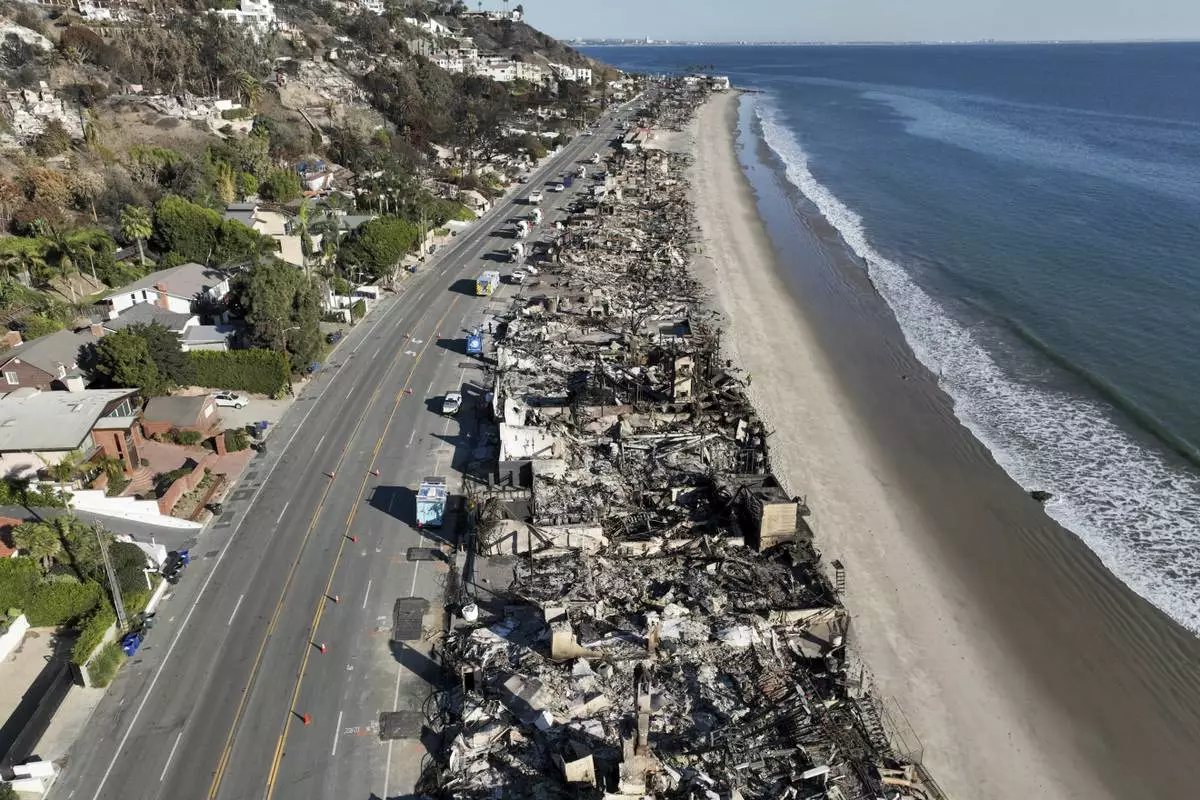
FILE - An aerial view shows the devastation from the Palisades Fire on beachfront homes Wednesday, Jan. 15, 2025 in Malibu, Calif. (AP Photo/Jae C. Hong, File)
The White House is planning on Friday to unveil President Donald Trump’s 2026 budget, a sweeping framework that's expected to propose steep reductions, if not a wholesale zeroing out, of various federal programs as part of his administration’s priorities.
Meanwhile, the Trump administration has asked the Supreme Court to strip temporary legal protections from 350,000 Venezuelans, potentially exposing them to being deported.
Here's the latest:
“We are going to be taking away Harvard’s Tax Exempt Status,” he wrote on his social media site Friday morning. “It’s what they deserve!”
Trump and his White House have repeatedly gone after Harvard. In addition to threatening its tax-exempt status, the administration has halted more than $2 billion in grants to Harvard and wants to block the school from being able to enroll international students.
The detailed Army plans for a potential military parade on Trump’s birthday in June call for more than 6,600 soldiers, at least 150 vehicles, 50 helicopters, seven bands and possibly a couple thousand civilians, The Associated Press has learned.
The planning documents, obtained by the AP, are dated April 29 and 30 and have not been publicly released. They represent the Army’s most recent blueprint for its long-planned 250th anniversary festival on the National Mall and the newly added element — a large military parade that Trump has long wanted but is still being discussed.
The Army anniversary just happens to coincide with Trump’s 79th birthday on June 14.
While the slides do not include any price estimates, it would likely cost tens of millions of dollars to put on a parade of that size.
▶ Read more about the Army’s military parade plans
As Trump faces significant pushback from federal judges, a new poll shows U.S. adults are more likely to believe the president is the one overstepping his power rather than the courts -- although Republicans largely think the opposite.
According to a poll from The Associated Press-NORC Center for Public Affairs Research, about half of Americans say the president has “too much” power in the way government operates these days. On the other hand, Americans are more likely to believe the federal courts have an appropriate amount of authority. Only about 3 in 10 U.S. adults say that federal judges have “too much” power.
Republicans see it the other way: Roughly half say the federal judiciary has too much power, and only about 2 in 10 say the president does.
▶ Read more about the latest AP-NORC poll
When the Justice Department lifted a school desegregation order in Louisiana this week, officials called its continued existence a “historical wrong” and suggested that others dating to the Civil Rights Movement should be reconsidered.
The end of the 1966 legal agreement with Plaquemines Parish schools announced Tuesday shows the Trump administration is “getting America refocused on our bright future,” Assistant Attorney General Harmeet Dhillon said.
Inside the Justice Department, officials appointed by Trump have expressed a desire to withdraw from other desegregation orders they see as an unnecessary burden on schools, according to a person familiar with the issue who was granted anonymity because they were not authorized to speak publicly.
Dozens of school districts across the South remain under court-enforced agreements dictating steps to work toward integration, decades after the Supreme Court struck down racial segregation in education. Some see the court orders’ endurance as a sign the government never eradicated segregation, while officials in Louisiana and at some schools see the orders as bygone relics that should be wiped away.
▶ Read more about the end to the desegregation order
— Collin Binkley
Trump on Thursday signed an executive order aiming to slash public subsidies to PBS and NPR as he alleged “bias” in the broadcasters’ reporting.
The order instructs the Corporation for Public Broadcasting and other federal agencies “to cease Federal funding for NPR and PBS” and further requires that that they work to root out indirect sources of public financing for the news organizations. The White House, in a social media posting announcing the signing, said the outlets “receive millions from taxpayers to spread radical, woke propaganda disguised as ‘news.’”
It’s the latest move by Trump and his administration to utilize federal powers to control or hamstring institutions whose actions or viewpoints he disagrees with. Since taking office, Trump has ousted leaders, placed staff on administrative leave and cut off hundreds of millions of dollars in funding to artists, libraries, museums, theaters and others, through takeovers of the John F. Kennedy Center for the Performing Arts and the National Endowment for the Humanities.
▶ Read more about the executive order
Rubio has been thrown into two top national security jobs at once as Trump presses forward with his top-to-bottom revamp of U.S. foreign policy, upending not only longstanding policies that the former Florida senator once supported but also the configuration of the executive branch.
Trump’s appointment of Rubio to temporarily replace Mike Waltz as national security adviser is the first major leadership shake-up of the nascent administration, but Waltz’s removal had been rumored for weeks — ever since he created a Signal group chat and accidentally added a journalist to the conversation where top national security officials shared sensitive military plans.
So, just over 100 days into his tenure as America’s top diplomat, Rubio now becomes just the second person to hold both positions. He follows only the late Henry Kissinger, who served as both secretary of state and national security adviser for two years under Presidents Richard Nixon and Gerald Ford in the 1970s.
▶ Read more about Rubio’s new role
The Justice Department asked the high court to put on hold a ruling from a federal judge in San Francisco that kept in place Temporary Protected Status for the Venezuelans that would have otherwise expired last month.
The status allows people already in the United States to live and work legally because their native countries are deemed unsafe for return due to natural disaster or civil strife.
A federal appeals court had earlier rejected the administration’s request.
Trump’s administration has moved aggressively to withdraw various protections that have allowed immigrants to remain in the country, including ending TPS for a total of 600,000 Venezuelans and 500,000 Haitians. TPS is granted in 18-month increments.
The emergency appeal to the high court came the same day a federal judge in Texas ruled illegal the administration’s efforts to deport Venezuelans under an 18th-century wartime law. The cases are not related.
▶ Read more about the Trump administration’s request

President Donald Trump gives a commencement address at the University of Alabama, Thursday, May 1, 2025, in Tuscaloosa, Ala.(AP Photo/Manuel Balce Ceneta)
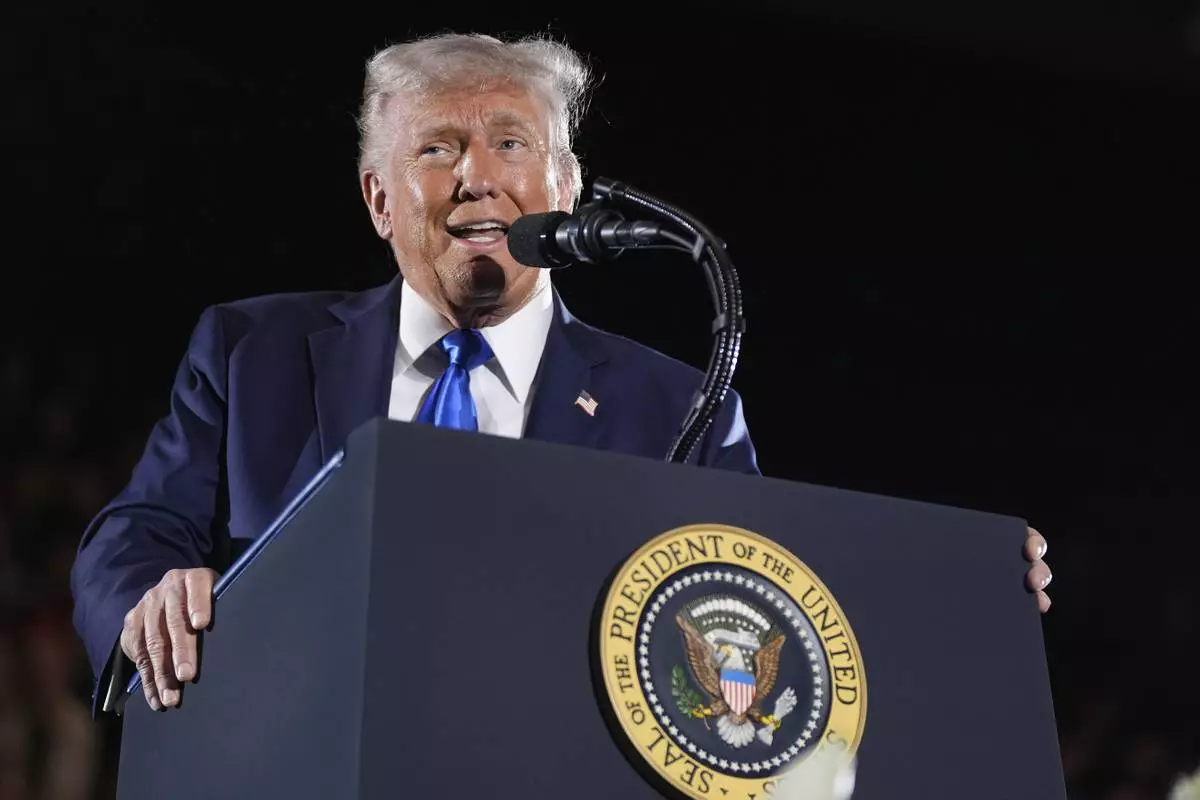
President Donald Trump gives a commencement address at the University of Alabama, Thursday, May 1, 2025, in Tuscaloosa, Ala. (AP Photo/Manuel Balce Ceneta)

President Donald Trump arrives to give a commencement address at the University of Alabama, Thursday, May 1, 2025, in Tuscaloosa, Ala.(AP Photo/Manuel Balce Ceneta)





